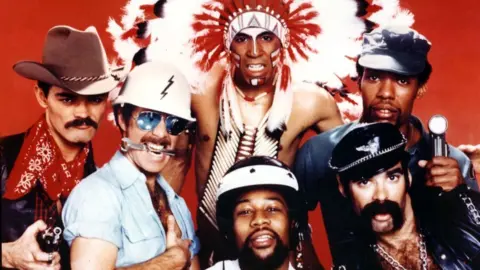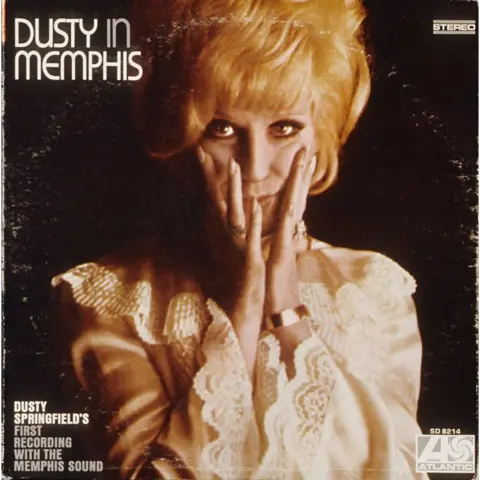The Village People's YMCA is preserved for posterity
 Getty Images
Getty ImagesYMCA by The Village People has inspired partygoers to wave their arms around on countless dancefloors since 1978.
It's feelgood. It's camp. It's cheesy. The US Library of Congress has also now decided it is historically important.
The library has added the disco anthem to its National Recording Registry, which preserves for posterity audio that is "culturally, historically or aesthetically significant".
Material by Whitney Houston and Dr Dre has also just been admitted.
The registry was established in 2000 and is tasked with identifying 25 titles per year that reflect the cultural heritage of the US.
The Village People's disco anthem reached number one in more than a dozen countries, including the UK, although it stalled at number two in the US.
It has become a gay anthem, but co-writer Victor Willis told the BBC the semi-autobiographical song was meant to have a universal message.
"It was about the urban lifestyle of when I grew up going to the Y and playing basketball and hanging out," he told BBC 6 Music's Matt Everitt last year.
"That was my interpretation of it. I didn't know anything about the lifestyle of other people that go there."
'Putting it in a mountain'
This year's other inductees include Dr Dre's debut studio album The Chronic; Whitney Houston's version of I Will Always Love You; the original Broadway cast recording of Fiddler on the Roof; Dusty Springfield's landmark album Dusty in Memphis; and Wichita Lineman by Glen Campbell, who died in 2017.
"I'm humbled and, at the same time for Glen, I am extremely proud," said the song's writer Jimmy Webb.
"I wish there was some way I could say, 'Glen, you know they're doing this. They are putting this thing in a mountain.'"
 Michael Ochs Archives
Michael Ochs Archives
One of the more dramatic recordings to be preserved is a live radio broadcast made by the Boston Symphony Orchestra on the day of US President John F Kennedy's assassination in 1963.
Conductor Erich Leinsdorf broke the news of the of JFK's death midway through the concert, to audible gasps from the audience. He then distributed the sheet music for the Funeral March from Beethoven's Symphony No 3 to the orchestra, who played the piece unrehearsed.
More soothing pieces include the theme song to children's TV show Mister Rogers - recently immortalised on film by Tom Hanks - and Puccini's Tosca, performed by the opera great Maria Callas.
Although the vast majority of recordings in the registry are musical, spoken word recordings are eligible, and this year's selection includes a play-by-play commentary on a 1951 baseball showdown between the New York Giants and the Brooklyn Dodgers.
The tiebreaker ended with Bobby Thomson's dramatic, game-winning home run, known as "the shot heard around the world".
There is also a 1939 episode of Arch Oboler's Plays, which was described by the Library of Congress as "one of the earliest American old-time horror radio programs".
The show was said to be an important influence on Rod Serling, who went on to create The Twilight Zone.

Follow us on Facebook, or on Twitter @BBCNewsEnts. If you have a story suggestion email [email protected].
